Even with a perfect government, we'd still need a lot of private charity
Charity isn't always and only a distraction from political reform
One of the most common criticisms I get in conversations about effective altruism is that private charity is always and only a band-aid solution for problems that should be permanently fixed by our political system. Some go farther to say charity is meant to distract the recipients from reform or revolution.
I’ll argue that this is wrong. Even with a perfect government, it would be extremely important to have a lot of private charity.
I’ll use these definitions:
Perfect government: Up to the reader! This can be anything from liberal democracy to communism to anarcho-capitalism. I’m mainly writing with a left-wing audience in mind since that’s where I hear this criticism most often.
Private charity: Individuals or small groups choosing to send their own resources to specific people and causes, without deferring at all to the political entity that governs them. Under this definition, private charity could still exist under a semi-communist government. You and a small group of like-minded people could decide to live below the means you’re given by your communist system, and send your additional resources somewhere else.
I see three reasons private charity will always be useful:
It’s politically impossible for a government to spend enough to solve all problems. Citizens should be able to give more than what the government can tax. Even a perfect government would never be able to spend enough resources on its own to solve all the problems private charity can help with, like global poverty. Solving these problems would require taxing all its citizens until they were living in poverty and gutting most social services. Individuals should be able to privately donate more than what’s politically possible to tax. Their donations could always still save additional lives.
Political minorities will always have reasonable disagreements with the majority (“the fact of reasonable pluralism”) and want to support causes the government doesn’t. Reasonable people will always develop significant disagreements about ethical questions. Political minorities would want to support causes the democratic majority doesn’t value.
Many problems are not the result of background failures of government, so perfect government wouldn’t solve them. Many problems that could be helped with more resources sent from private charity will persist even if we achieve a perfect government system.
There’s a lot more to say about the value of “band-aid solutions,” and the debate about top-down charity vs. systematic change and mutual aid. I’ll talk more about that in a separate post. I know there’s a broader debate and I’m only avoiding it in this post to stay concise.
I won’t make claims about the average quality of private charity as it exists right now, which I think is often bad, though the best charities are extremely good. You can disagree. I’ll only be arguing that we shouldn’t reject private charity in principle and that it’s not literally always better for the government to address problems.
How might private charity be bad?
I’ll try to paint a picture of what critics of private charity worry about:
Imagine all water is privatized and individually delivered to people in bottles. Obviously everyone would be better off if the government built a common pipe system. A rich person who makes money selling water doesn’t want the pipe system built. She doesn’t want to be taxed, or have her business undermined by a government service. She organizes a few other rich people with similar interests to start a water charity, where they give water to those who need it most. This serves two purposes: it stops a revolt from people who aren’t getting water, and makes the rich people (and the stupid private water system) seem heroic and good and natural to everyone else. For the small price of donating a little to charity, the rich people keep their wealth and power, and the problem persists.
This story seems compelling, and I’m sure that there are examples from history of private charity functioning this way. Maybe you believe that because of the way capitalism works right now, all private charity works this way. My goal will only be to convince you that in an ideal world, a lot of private charity would often be extremely helpful and wouldn’t hold back political progress.
3 reasons private charity would be important under a perfect government
It’s politically impossible for a government to spend enough to solve all problems. Citizens should be able to give more than what the government can tax.
Global Poverty
What would it mean for a government to completely replace private charity working on global poverty?
There are a lot of great government global aid programs (PEPFAR being maybe the best) that benefit from scale that individual charities can’t compete with. Couldn’t we just have the government take over all aid?
All our current spending on global aid is still allowing millions of people to die each year from easily preventable causes. Their deaths are each in some way the result of extreme poverty, because they can’t access the life-saving resources most Americans take for granted. We could send a lot more resources than we do to the poorest people in the world and still help a lot. I’ll add a line on the graph showing where global poverty is ended (this is arbitrary and the actual line would be much higher than this, I’m just making a simple visualization):
So if we replace all private charity with government spending, there’s still going to be a lot of room for additional private charity to do a ton of good.
The upper limit of how much good charity can do is extremely high, because so many people in the world are suffering and dying from causes that can be easily fixed by resources everyday citizens of wealthy countries like America can afford.
Why not just go all the way and have government replace all possible good private giving to the global poor?
My argument will be that even with a perfect government, this couldn’t happen, because its citizens wouldn’t allow it to spend enough to make private charity unnecessary. Even under an extremely generous and cosmopolitan communist government, the limit of the government’s giving would be below what would solve all global poverty, leaving room for citizens to send more of their own resources to the global poor if they chose.
You might say “Well MY perfect government would be so good and radically different from everything that came before that it would cross that purple line and distribute so much that global poverty would be solved.” I’m confident that this is wrong.
Solving global poverty immediately would require so much redistribution that it would be politically impossible
Global income inequality is incredibly stark.
Because the median American is so much richer than the average global citizen, there are a ton of ways money that seems trivial to us can be drastically useful if spent well in other countries. A back-of-the-envelope calculation implies that 5-8 million people die every year due to global poverty. Every $5000 donated to the most effective global aid charities, like the Against Malaria Foundation, probably permanently saves a person’s life. This implies that there’s still a ton of money we could send to global health charities that would do a lot of good. If we had already donated enough, it should be much harder to find cheap simple opportunities to save lives.
Right now there’s enough general economic value in the world for an average global income of about $22,500 (adjusted for purchasing power). If we were to completely equalize all incomes while somehow keeping economic output exactly as high as it is, everyone would make $22,500. The world has never been as wealthy, we’ve never had more to go around, and there’s only enough resources on Earth to give everyone $22,500 and no more.
“Solving” global poverty would mean more or less flattening global incomes. As long as anyone on Earth makes less than $20,000/year, in combined private income and government services, they are much more likely to die of simple preventable diseases and experience other major problems that could be helped by government redistribution or private charity.
So a government committed to completely “solving” global poverty without private charity would need to tell its citizens “We’re going to defund most or all government services, tax you down to living on $20,000 per year, and send all those resources we’re taking from you to the other side of the world to people you will never meet.” This seems politically impossible. Even after a successful communist revolution, it seems unlikely that everyone in formerly rich countries would immediately accept a life on $20,000 per year with almost no government services. There’s the whole separate problem of this completely blowing up our economic system and removing important incentives for people working different jobs, but we’re imagining a political utopia here so let’s just go wild.
Let’s say all global governments are completely committed to solving all global poverty by redistributing resources. They can’t do that immediately, it would be politically impossible to tax all citizens of wealthy countries down to $20,000. The only way to do this would be to redistribute some wealth, promote economic growth in poor countries, and wait for global incomes to steadily equalize.
This would take a long time.
In the meantime, millions of people would continue to die from extreme poverty.
Because the government would have already hit its limit of what it can spend, individual citizens could choose to sacrifice more of their resources to send even more aid. This would still save lives as long as globally raising everyone out of extreme poverty were ongoing. If this transition took years, there would be millions of people still dying from poverty that our perfect government couldn’t help. Private charity could save millions of lives, even in a world with perfect government.
Foreign aid is really unpopular
Public opinion in America right now is decidedly against significant foreign aid. A majority of Americans think we’re spending too much on foreign aid. Our spending is about $200 per American per year. The US GDP per capita is about $66,000 per year, so Americans believe that spending 0.3% of our per capita GDP on aid each year is too much.
We need to think seriously about what the political limits of government foreign aid are. I worry that even in a better system, they might still be low.
What causes global poverty? Does this matter much for the problem?
A common objection is that our political system causes global poverty in the first place. Maybe you believe that most global poverty is caused entirely by capitalist institutions extracting wealth from the global poor. In this story, donating to people in global poverty is kind of like donating to enslaved people to make their lives slightly more comfortable. It ignores the underlying brutal unjust system keeping them in poverty in the first place.
Even if you believe that our current political system causes global poverty, private charity would still be extremely important after we ended the system. The problems created by oppression don’t go away when oppression ends. If we’re extracting wealth from the global poor, they would still be poor immediately after the wealth extraction stopped. We would need a massive global reparations program to redress the harms. We’ve already seen that governments couldn’t immediately redistribute enough resources to fully raise the global poor completely out of poverty. This would leave a lot of room for individuals to privately choose to give to the global poor beyond what the government was able to tax as part of this program of reparations and rebuilding. Even here, private charity matters a lot.
My opinion is that global poverty is caused by a complex mix of past injustices like colonialism (one of the worst things that’s ever happened), some remaining extractive institutions in part propped up by rich countries or just leftover by colonialism, bad individual actors and groups in the governments of poor countries, the deep mysteriousness of economic growth itself (experts often drastically disagree on what causes growth), and the fact that poverty is the norm of human society and it’s wealth that’s novel.
Even though I disagree with people on the far left about the root causes of global poverty, I would still support massive reparations to countries for the harms of colonialism, and additional massive global aid programs purely because there’s so much low hanging fruit to help people in other countries. Both I and the far left run into the same problem of the government being limited in what it can give to the point that individuals giving more will still help a lot.
Regardless of what you think is the cause of global poverty, private giving will always be able to save millions of additional people over and above what a government can do on its own. Even in a perfectly governed world, millions of people would still die on the way to eliminating global poverty. Private charity is more than just a useful addition to government aid. It can save millions of people.
Research
Another area that could use almost infinite resources is scientific and social research. The government shouldn’t tax its citizens down to poverty wages and spend all those resources on research, but each additional dollar spent on good research would have high expected payout. A perfect government would still have to leave promising research unfunded, leaving room for private charity.
There might also be valuable research that majorities in democratic countries would vote against spending money on. For example, because I think animal welfare is such a massive problem, I’d like a lot more spending on alternative proteins and/or lab grown meat. This is very unpopular. Political majorities in my country don’t want the government to support it, so a perfect democratic government wouldn’t fund it. I’d like the option to privately use my own resources to support research I think is important when I disagree with the majority.
This is a place where private charity can be a useful tool for political minorities to pursue their values, which will be the theme of the next section.
Political minorities will always have reasonable disagreements with the majority (“the fact of reasonable pluralism”) and want to support causes the government doesn’t
Let’s say we’ve solved global poverty. Everyone has enough resources to avoid death from easily preventable causes.
Even in this world, we’d still need a lot of private charity.
A fundamental reality about the world that will be with us no matter what government we have is the “fact of reasonable pluralism.” Reasonable people will always come to drastically different conclusions about what the right thing to do is and where society should be spending its limited resources.
A clear case of a common values disagreement is how important it is to prevent animal suffering.
I think factory farming of animals is a catastrophic moral emergency. Most Americans don’t. The vast majority of Americans eat a lot of meat, get really angry when meat prices go up at all, and don’t donate anything to help farmed animals. If we had a perfect government that were democratic at all, it seems deeply unlikely that the government would ban bad factory farming practices on its own. Meat prices would go up too much, people would get mad and demand the government lower them. We might be able to change people‘s beliefs and behavior, but it would take a while, and a lot of effort. In the meantime, trillions of animals would be factory farmed and lead very bad lives.
The perfect government wouldn’t ever fix this problem as long as a majority of its citizens supported factory farming. What should I be allowed to do to convince my fellow citizens to change their minds?
Maybe I should just debate a lot. Some utopian visions involve everyone just using rational debate to sway the voting public into different opinions.
The modern animal welfare movement has already existed for hundreds of years. In that time, the problem of animal welfare has gotten drastically worse.
Public deliberation on its own seems to not be working. I’d like the option to do a lot more:
If I were allowed to donate some of my personal resources to alternative proteins research, I and others who care about animals might speed along new and better foods people could eat instead of meat. This would help change my fellow citizens’ minds. They’d be much more likely to accept arguments about animal welfare if they had plant-based alternatives they liked just as much as meat.
Doing public deliberation is in some way “private giving” in the sense that I’d be giving up my very limited time to argue for a specific cause. If I’m allowed to do that, I’d also like to be able to privately donate my resources to support other people who also want to influence public discourse about animals.
Maybe I’d just like to donate to directly pay people to stop eating meat. This would be a peaceful way of making an ethical trade with my fellow citizens. They value the resources I’d give them more than eating meat, I’d value them not harming animals more than the resources I’d give them. We’d each be better off.
Each of these couldn’t be funded by the perfect government, because the democratic majority wouldn’t want it funded. Each is a clear case where private charity would be an extremely useful tool for me to use.
Even if you think all reasonable people agree in the case of animal ethics and I’m being silly, there are so many other ethical questions reasonable people will disagree about under a perfect government that we should expect private charity to always be a powerful tool for political minorities.
This could even extend to aesthetic values. I love dungeon synth. Many people don’t. I would like to be able to spend some of my resources to help dungeon synth artists make more music. A democratic government wouldn’t be interested in spending many resources on dungeon synth. Most people don’t like it. If I care enough about it that I’d like a lot more of it, I’d like to be allowed to use my own resources to promote that value. Just like we won’t come to a final agreement on all ethical questions, we won’t come to a final agreement on aesthetic questions. Once again, private charity is a useful tool for people in a minority to use.
Many problems are not the result of background failures of government, so perfect government wouldn’t solve them
People sometimes talk as if all major problems could be solved by a perfect political system. Maybe there are a lot of problems this is true for. Maybe poverty is actually just the result of extractive institutions. Maybe all prejudice and bad power dynamics and violence are the result of bad incentives imposed on people by the government. Maybe massive moral catastrophes like factory farming are the result of propaganda.
I’m probably not representing this view fairly. It seems silly when I type it out. Some people do seem to imply that if all the root causes of our problems were properly dealt with by our political system, we wouldn’t have any more problems for private giving to help fix.
This seems deeply incorrect.
Even if we assume humans are angels not predisposed at all to violence or bad behavior, there are still inherent aspects of the human condition that will lead to strife and difference:
Reasonable people will always disagree over fundamental values.
Our unbelievably limited knowledge of what’s true.
The fact that the world just has very limited resources right now, and people don’t have much of an appetite for being taxed into poverty to distribute their very limited resources in ways that could actually help people the most.
A lot of problems are created by our political system, but not all of them are. For the ones that aren’t, perfect government won’t have comprehensive solutions. Private giving will often still be useful and good.
Conclusion
Each of these individually seems like an extremely strong reason for private charity to still exist in a world with perfect political systems. Private charity is not just a poor substitute for better political systems. Even if our systems were perfect, we’d still need a lot of private charity. The criticism that private charity is always and only a poor substitute for political action is, I think, clearly incorrect.




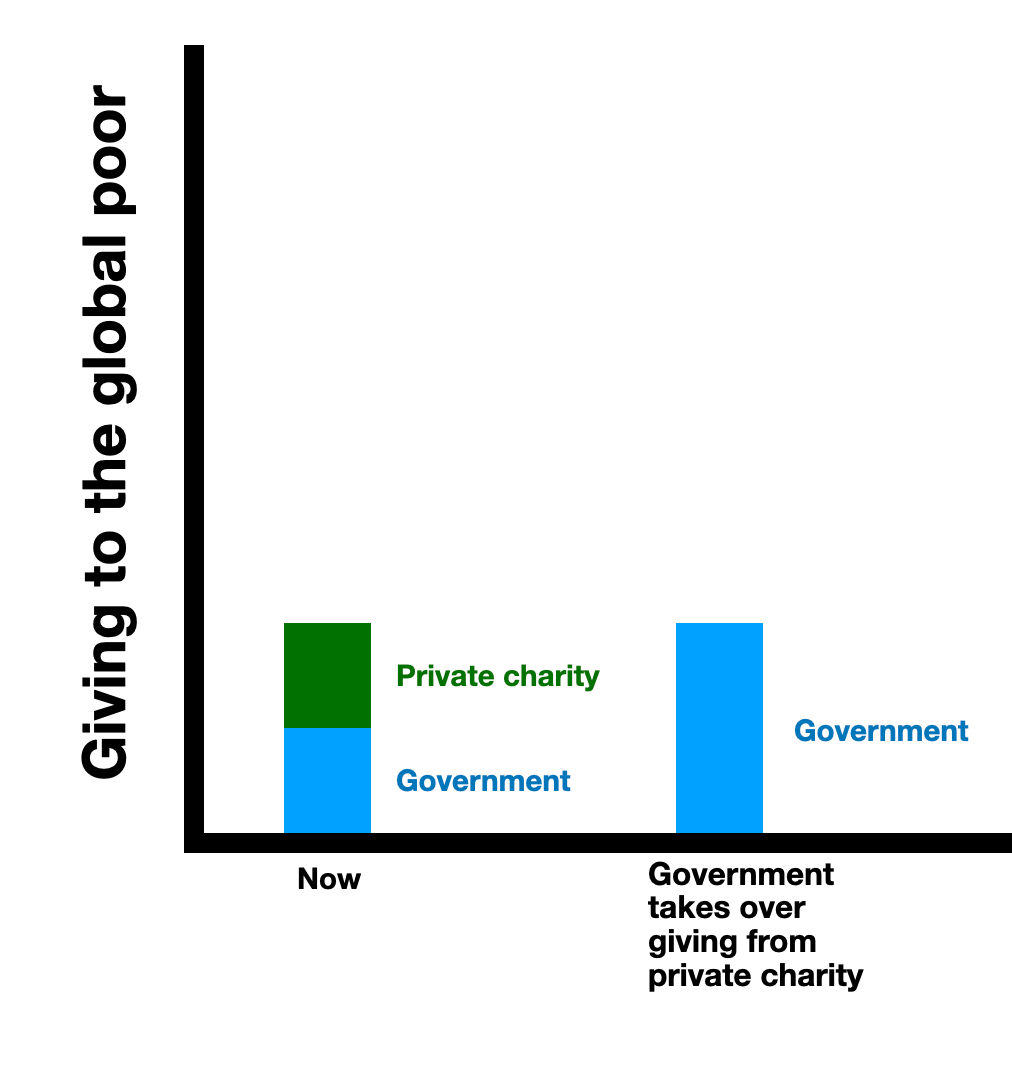
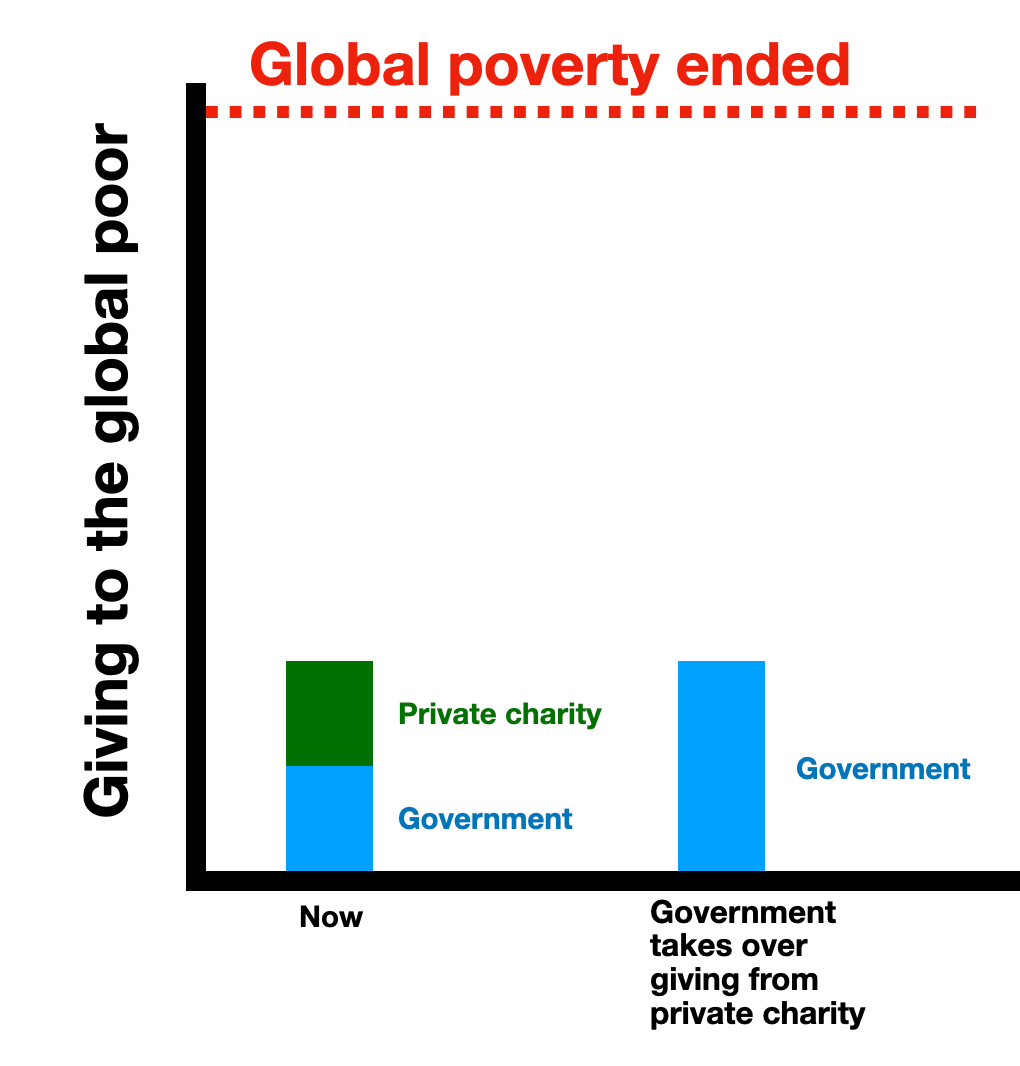
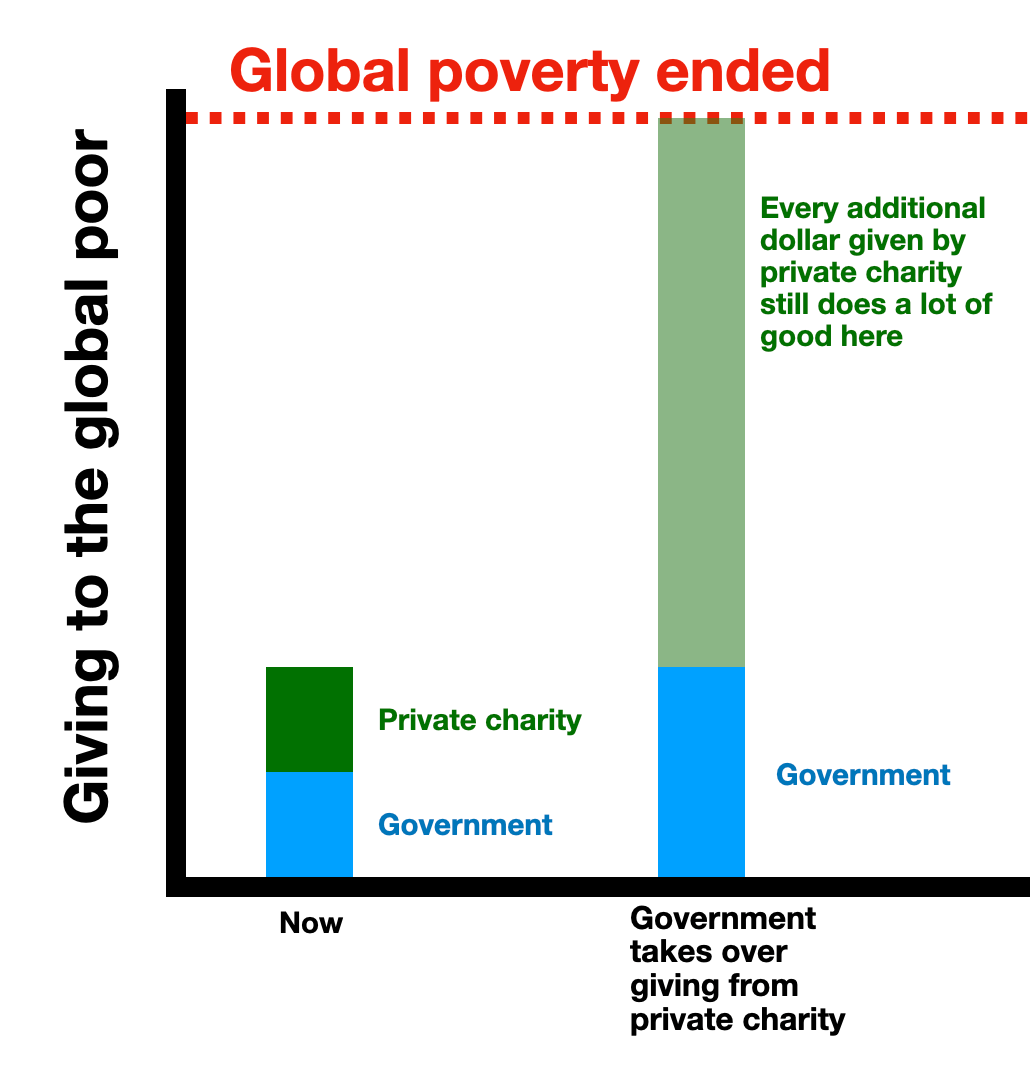
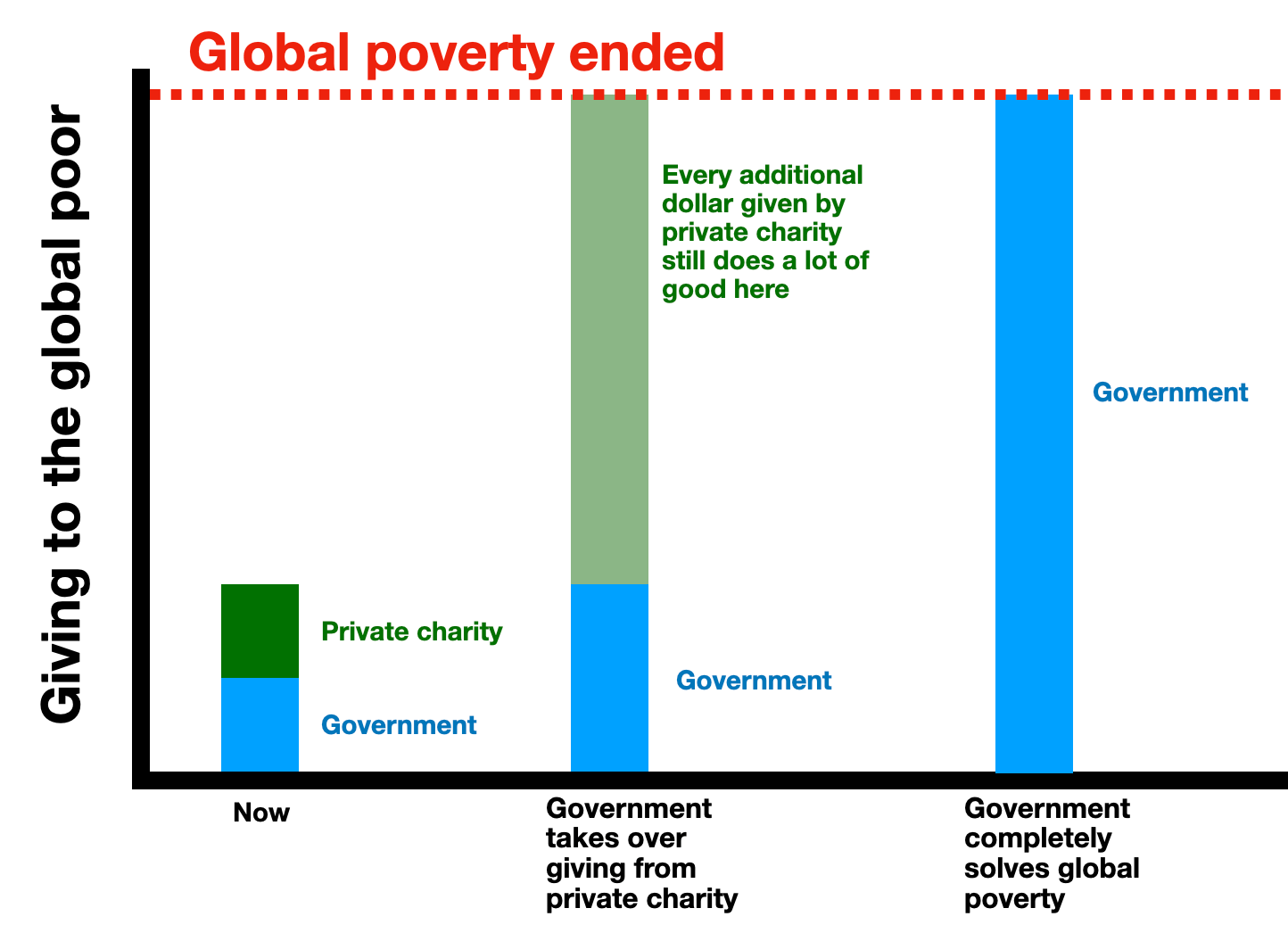
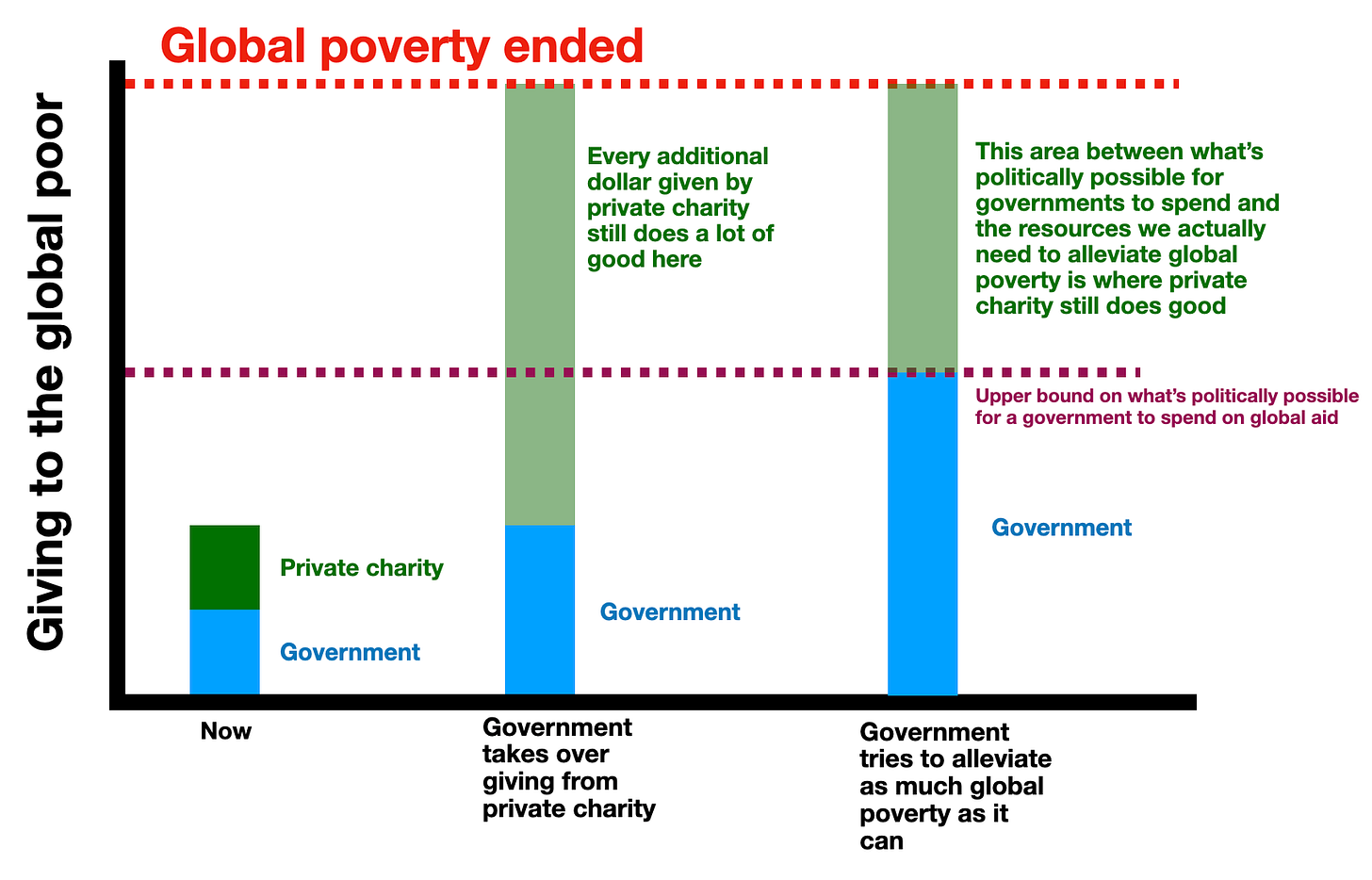
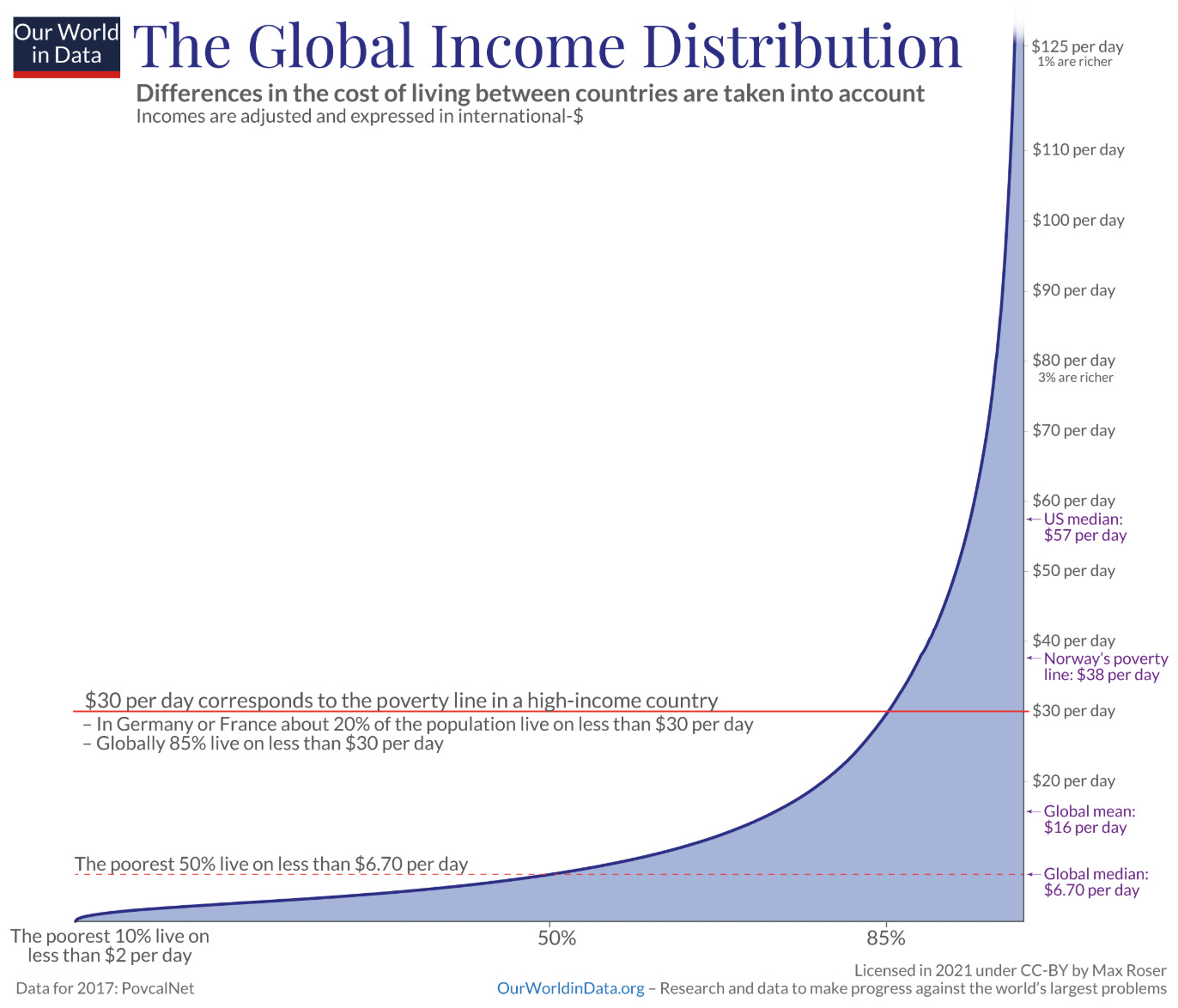
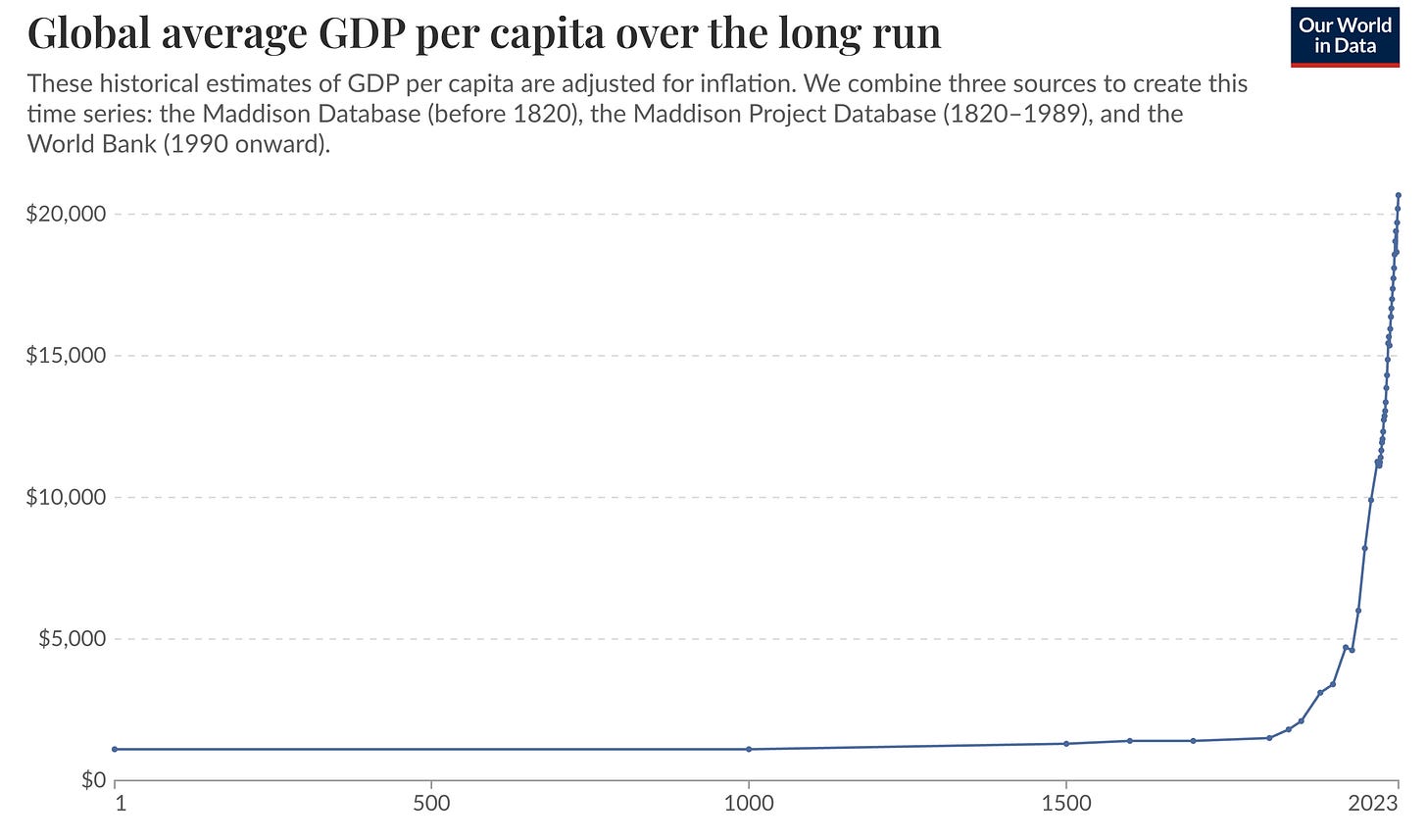
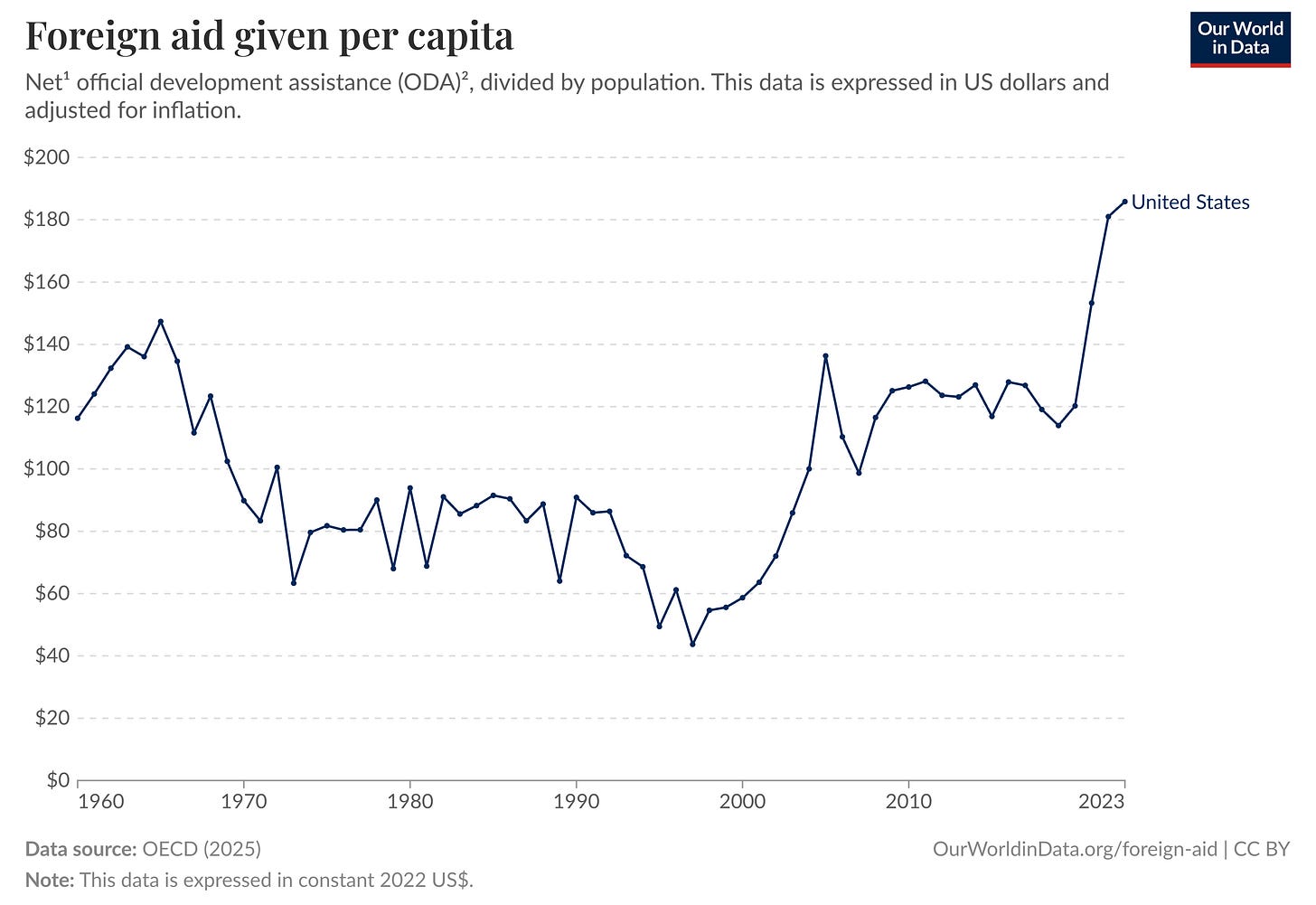
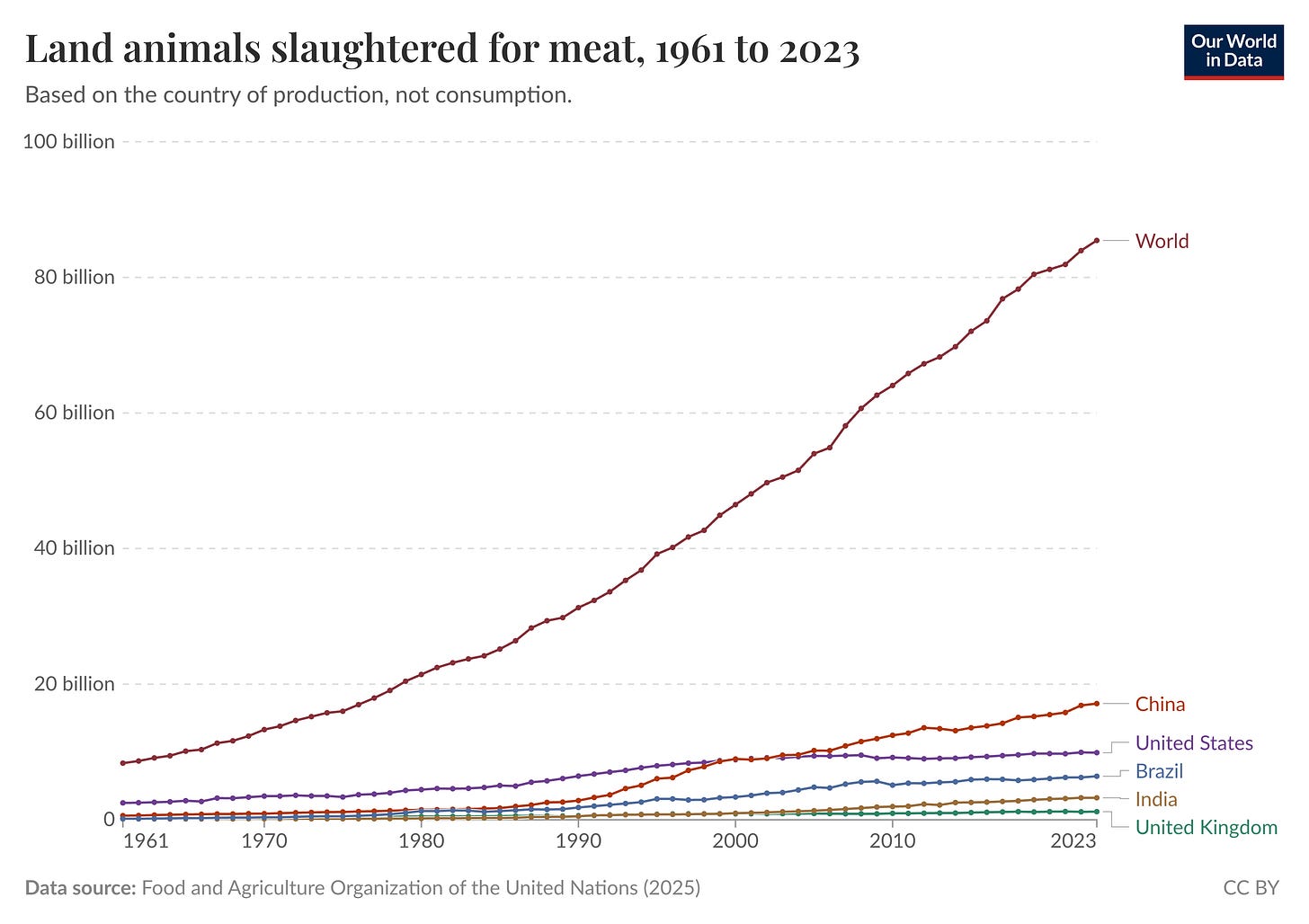
I'd mount a much simpler defence. Band-aids are good! And they're especially good when your predecessors have been pushing for radical surgery for over a century without success.
Your choice isn't "philanthropy or socialism", your choice is "philanthropy or no philanthropy."
An insightful piece! While I strongly agree with your conclusion, I have a slight concern with the argument made in the essay. The way you define a "perfect government," it is not necessarily the case that the maximum politically allowable amount of taxation or even that majority-supported viewpoints would dictate what a government could do. Because you define "perfect government" to be any conception of a perfect government a viewer might have, this could include more paternalistic views on the role of government. There are many that would argue that it is the governments role to step in when individuals on their own are not acting morally.
I really appreciated your point about people having differing morals, such that an individual may not agree with the majority that is represented in government. While this is a strong point and my primary reason to support your conclusion, this argument only works if one can first argue that a perfect government should not be up to the reader but instead necessarily listens to its people.
Anyways, great post as always and thank you!